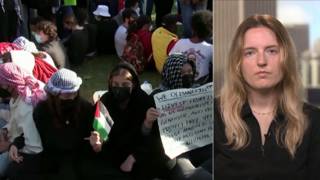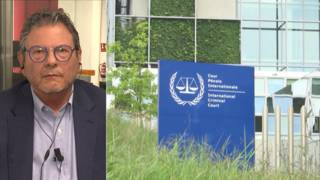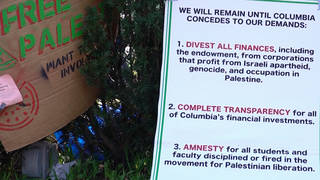The United Nations has launched an appeal for $300 million to bring relief to people in the Philippines devastated by Typhoon Haiyan, one of the strongest storms recorded in world history. According to the United Nations, more than 11 million people have been impacted. John Ging, operations manager of the U.N. Office for the Coordination of Humanitarian Affairs, said the relief effort is focused on both the living and the dead.
John Ging: “There are estimated 660,000 people that have been displaced by this typhoon, and now all of our efforts are of course on mobilizing very quickly, and on a huge scale, a response. Entire areas have been completely and utterly decimated, so keeping those alive, as well as dealing with the corpses, you know, they’re concurrent priorities, and already teams are on the ground dealing with that, and more teams are on their way.”
Many Filipinos both inside and outside the country are mourning family members killed by the storm. One evacuee described how she lost her daughter.
Evacuee: “Only a few moments, just a few moments, and we would all be saved, but I accidentally let go of my child’s hand. I guess it was her sacrifice so it won’t be difficult to escape, because she knew that if I kept carrying her, both of us would drown.”
The death toll remains unknown, but more than 10,000 people are now believed to have died in the hard-hit city of Tacloban alone. The Philippines government has responded to the crisis in the city in part by imposing a curfew, deploying armored vehicles and establishing checkpoints to thwart so-called looting by residents desperate for food and supplies after losing everything. Many residents of Tacloban and other more remote areas have yet to see much-needed aid amid continued rainfall, blocked roads and other hurdles fueled by the devastation. The United States and Britain, meanwhile, have sent warships to the Philippines to assist in the relief effort. The storm has formed a powerful backdrop to the U.N. climate change summit in Poland, where Philippines lead negotiator Naderev “Yeb” Saño has launched a hunger strike to call for urgent action on climate change.










